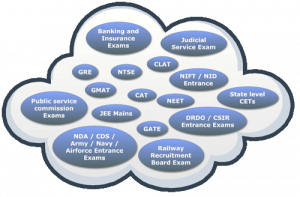Best Books to Read in 2023
Best Books to Read in 2023 Are you a bookworm or a bibliophile, if yes, then this is the ...
Executive MBA (EMBA) programmes are popular with experienced executives seeking management and career advancement. This thorough guide will explain an EMBA, its advantages, the suitable candidates, the optimum time to pursue it, the numerous kinds of EMBA courses, and the distinctions between an EMBA and a conventional MBA. We will also discuss eligibility, specialisations, and whether an EMBA is better than an MBA.
Also, read Online MBA vs Regular MBA: Which Option is Best for Your Career Goals?

Executive MBAs, or EMBAs, are postgraduate management programmes for experienced professionals with many years of experience. EMBA programmes fit executives’ demanding schedules, unlike full-time MBAs. These programmes provide advanced marketing, HR, international business, microfinance, and leadership skill
EMBA programs offer several advantages to senior professionals:
EMBA programs are ideal for:
The ideal time to consider an EMBA program is when:

EMBA programs come in various formats to accommodate the needs of working professionals:
The distinction between an Executive MBA (EMBA) and a regular MBA is significant, as it ultimately depends on the career goals and the stage of professional development of the individual. Let’s delve into these differences in a more elaborate manner.
Also, read BBA vs Integrated BBA+MBA: Choose the Right Program for You
EMBA programs are tailor-made for professionals who already possess a substantial amount of work experience. These programs are structured to impart specialized, expert-level knowledge in various aspects of business management. The curriculum of an EMBA is carefully designed to address the specific needs and challenges that seasoned executives encounter in their roles.
On the other hand, regular MBA programs are designed for a broader audience, including recent graduates and professionals with limited work experience in their respective fields. These programs aim to provide a holistic understanding of various facets of business, laying a strong foundational knowledge base.
Here’s a comparison of key differences between EMBA and regular MBA programs:
| Criteria | Executive MBA | Regular MBA |
| Curriculum | Skill-based, advanced business knowledge | Fundamental concepts, broad base |
| Eligibility Criteria | Minimum 3-4 years of work experience | Entrance exams and academic criteria |
| Suitability | Senior professionals, skill enhancement | Fresh graduates, career expansion |
The choice between an EMBA and a regular MBA is not a matter of one being better than the other; it’s about aligning the educational path with individual career objectives and circumstances.
Ultimately, the decision should be guided by your career aspirations, current experience level, and willingness to commit to a full-time or part-time program. Both EMBA and regular MBA programs can be valuable assets in advancing your career; it’s a matter of choosing the path that aligns best with your goals and circumstances.
Eligibility criteria for EMBA programs generally include:

EMBA programs often offer specializations in areas such as HR, finance, marketing, business analytics, leadership, operations, digital marketing, international business, IT, retail, entrepreneurship, healthcare, and hospital management.
Why Study Executive MBA?
Here are the top 10 EMBA programs in India, as ranked by the National Institutional Ranking Framework (NIRF) 2023:
.Conclusion
Executive MBA (EMBA) programs are tailored for experienced professionals looking to advance their careers and leadership skills. They offer specialized knowledge, networking opportunities, and flexibility to balance work and education. Deciding between EMBA and a regular MBA depends on your career goals and experience level, making it essential to align your choice with your professional aspirations. With the right timing and commitment, an EMBA can be a valuable asset in your journey toward career advancement and leadership.
Also, read Top 20 MBA Colleges in Jaipur
Meet Tanu Bhatnagar, an educational expert with extensive experience in teaching, research and mentoring.With a decade in... (Full bio)

Best Books to Read in 2023 Are you a bookworm or a bibliophile, if yes, then this is the ...

In the exhilarating journey of 10 Proven Memorize Techniques for Students learning, memory is your trusty companion. Whether ...

Top 20 toughest exams in world is about exams in the world that required very hard work to ...

Top 20 toughest exams in India - Exams are the perhaps most toughest moments for any student. A ...

Top 20 Colleges of DU Getting admissions to the top 20 colleges of DU is a dream for every ...

Top 20 NITs of India - Amongst the 31 NITs in India, today, we are talking ...

Here are the Top 12 Artificial Intelligence in Mumbai. Artificial intelligence (AI) refers to the simulation of human ...

As you stand on the Best Science Courses after 12th academic journey, the realm of science beckons, offering ...
Millions of students have entrusted CollegeChalo to facilitate their seamless and smooth admission process to their dream colleges and universities. With CollegeChalo, you can gain a competitive edge by easily accessing exam and course details to stay ahead of the admission journey. What are you waiting for?
Search your dream college